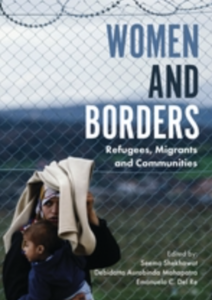My research program on separated families and the gendering of borders began around a Dalai Lama Foundation-funded monograph project (Contested Border and Division of Families in Kashmir, WISCOMP, 2009), which traced the intricacies of the impact of the division of Kashmir on female members of families divided by that division. I found impacts ranging from early death to mental illness, distributed based on gender by separation. This work built upon my dissertation turned book on women and conflict in Kashmir.

My co-edited volume Women and Borders: Refugees, Migrants and Communities (I. B. Tauris 2017), further revealed the gendered violences of border demarcation and separation. The chapters individually and collectively demonstrated militarization of borders subjugates female border-proximate populations and increases their risk of experiencing sexual and gender-based violence. My chapter dealt with the risks of trafficking and commercial sexual exploitation around the militarized border between India and Nepal, and the impacts of that trafficking on women who lived the violent imposition of that border.
My next project in this research area, “Gendered Lines,” leverages my previous fieldwork in India and Nepal to theorize the relationship between family separation and vulnerability to violence against women, making the case that assemblages of gender subordination intersect with border assemblages to be productive of particular, contextual sexual and gender-based violences. I am working on a draft of this paper/journal article for presentation at conferences in Spring 2021.